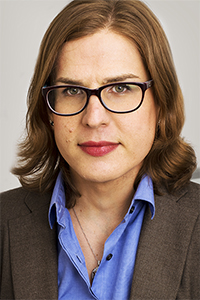Date/Time
Date(s) - 02/24/2020
9:35 am - 10:30 am
Location
New Engineering Building - Room 100
Categories No Categories
Weyerhaeuser Endowed Professor
Chemical Engineering
University of Washington
“Understanding Nanoscale and Molecular Processes in Emulsions Systems with Neutron and X-ray Scattering”
Abstract:
Emulsions are dynamic and complex systems with several physical mechanisms possibly leading to the formation, destruction and transformation of their interfacial and bulk structures. Simultaneously, emulsions are increasingly being used in consumer products (creams, cosmetics), for the synthesis of advanced materials (latexes, nanoparticles), in medicine (disease diagnosis and treatment) and in energy technologies (oil extraction and processing). This talk will summarize our past work using neutron and x-ray scattering to uncover fundamental colloidal and transport principles that are essential to understand in order to design new emulsion technologies for specific uses. I will briefly introduce the techniques of small angle neutron and x-ray scattering (SANS, SAXS) followed by the discussion of several examples showcasing how these have been applied to understand the formation of Pickering emulsions, the synthesis of ultrasound medical contrast agents, sonochemical production of semiconductor nanoparticles (quantum dots) and finally the analysis of mass transport processes ocurring within emulsion systems using contrast variation small angle neutron scattering.
Bio:
Prof. Pozzo’s research interests are in the area of colloids, polymers and other soft-matter systems. Her research group focuses on controlling and manipulating materials structure for applications in health, alternative energy and separations. Her group also develops and utilizes new advanced measurement techniques based on neutron and x-ray scattering. Prof. Pozzo obtained her B.S. from the University of Puerto Rico at Mayagüez and her PhD in Chemical Engineering from Carnegie Mellon University in Pittsburgh PA. She also worked in the NIST Center for Neutron Research as a post-doctoral fellow and is currently the Weyerhaeuser Professor of Chemical Engineering at the University of Washington where she has served since 2007. In addition to her research activities, she is also dedicated to improving engineering education with course development in areas of entrepreneurship and service-oriented global engagement.

